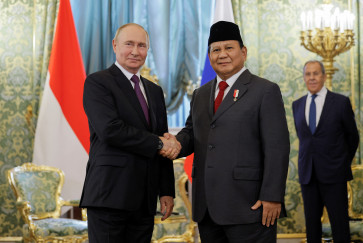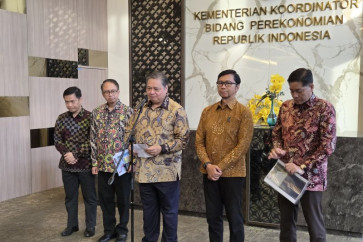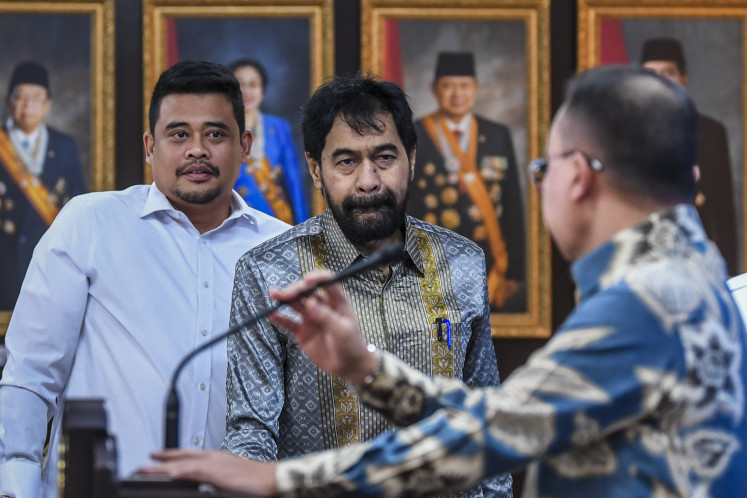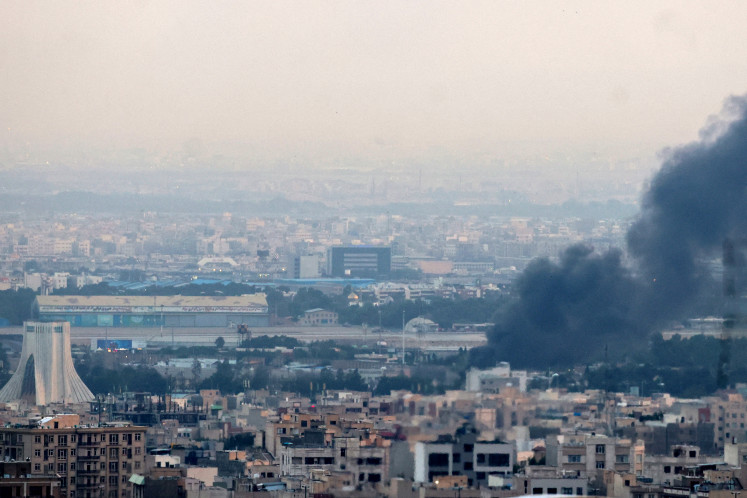Popular Reads
Top Results
Can't find what you're looking for?
View all search resultsPopular Reads
Top Results
Can't find what you're looking for?
View all search resultsSystemic bigotry in schools
There is no doubt that the problem of intolerance in public schools goes beyond the question of school uniform policies or students’ sartorial choice.
Change text size
Gift Premium Articles
to Anyone

T
he recent controversy over a vocational school in Padang, West Sumatra, requiring all female students, regardless of their faith, to don a hijab is another example of how big a role religion, or Islam, plays in the nation’s public affairs.
The incident is by no means unprecedented, but it has drawn strong reactions, not only from the public, but also, for the first time ever, the education minister himself, who swiftly condemned the school’s “intolerant” policy and later issued a joint-ministerial decree banning regional administrations and school principals from forcing certain religious uniforms on their students or banning them from wearing them.
Nadiem Makarim, a national icon of the start-up industry who became the youngest person to lead the Education Ministry, has made his message clear: There will be zero tolerance for intolerance in public schools. “The government will not tolerate teachers and school principals who engage in acts of intolerance,” the 36-year-old said.
We welcome the joint-ministerial decree and laud the government for finally recognizing the problem of systemic bigotry in public schools. Such a policy is long overdue, but there is no doubt that the problem of intolerance in public schools goes beyond the question of school uniform policies or students’ sartorial choice.
Various studies have shown that religious bigotry is rampant in schools, the very institution where students are supposed to learn about religious tolerance.
A 2018 survey by the Syarif Hidayatullah State Islamic University’s Center for the Study of Islam and Society (PPIM) found that 57 percent of 2,237 teachers from 34 provinces interviewed held intolerant views of people of different religious beliefs. A 2019 survey by the Wahid Foundation, meanwhile, found that 89.2 percent of 895 students it interviewed said they supported a mandatory hijab policy in public schools.
In recent years, we have also seen a series of incidents of intolerance in public schools, ranging from mandatory hijab policy to allegations that a non-Muslim student had his election as president of the student group at his school being annulled because of his faith.
Scholars have raised the question of whether all those incidents are merely symptoms of the current national education system, which they say enables religious intolerance.
The 2003 National Education Law clearly states that the purpose of national education is to “develop the potential of students to become a human being who is faithful and pious toward God, has good character, is healthy, knowledgeable, creative [and] independent, and to become a democratic and responsible citizen.”
The emphasis on educating students to become “faithful and pious”, scholars say, may have inadvertently been loosely interpreted as an order for pedagogues to place the study of religion as the core of national education. This becomes a problem when the religious majority take it as a license to enforce their own belief on people of other faiths.
We need to look back at this basic question again: What is the purpose of education? Most Indonesians may despise the French concept of laicite, but we believe that an over-emphasis on the role of religion in education has its own pitfalls.
Religion can inspire or provoke, unite or divide.









